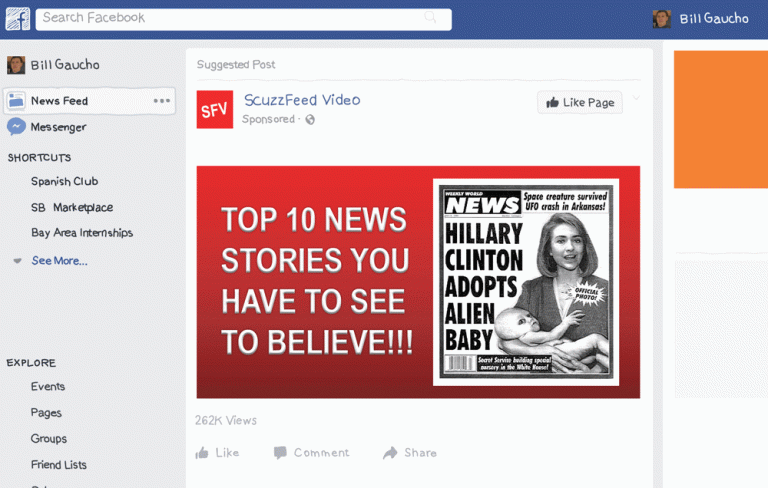
Michael Lin
Staff Writer
Truth in the media industry seems to come into question more and more. Mistrust of reporters is strong as ever with accusations of “fake news” being tossed across the political spectrum. Recently, though, France took the truth issue to a whole new level. As of this week, Facebook in France has collaborated with eight large media companies to put filters on news appearing on Facebook. Users can now report news articles as faulty, and the media companies will be required to fact-check its articles or be marked as disputed, potentially false news.
An example of fake news in the United States happened earlier this month when celebrity news site TMZ published an article stating that president Donald Trump changed “Black History Month” into “National African American History Month” because the president felt the former was outdated. TMZ used this as an attack on the president’s ability to recognize all black Americans.
However, the same phrase was used by many other American presidents, including Barack Obama, as a way to pinpoint the attention of historical significance. The writer had no evidence or basis to infer what Trump believed, but only assumed Trump’s intentions. It was fixed in a later apologetic article after public backlash.
In the end, professional news-reporting is a paying job, and the motive behind reporting fake news is somewhat understandable. In a way, they function like clickbait on YouTube—they show you what you want to see, but with no guarantee of it being true.
Although faulty news could do wonders to increase views, they jeopardize truth. If there really existed a reliable way to made sure all the information we receive from the media is truthful, then aggression that stemmed from miscommunication and misinformation can be entirely eliminated (which, I would argue, is most of the conflicts in this world).
All this is well and good until one sits down and start thinking of the ramifications of such a move. First and foremost—is this going solve the current hysteria over fake news in mainstream media? Well, that depends on how much truth we are talking about. If all it takes for an article to be perceived as truthful is a few reporters making sure their colleagues didn’t type up the wrong notes, then distrust in the media is only going to get worse.
Even if we are talking about getting fact-checkers to work, problems still remain. In this day and age, when the White House can use the Daily Mail, a highly controversial unsupported tabloid, as evidence to accuse NOAA’s data and “debunk” global warming, fact-checking doesn’t seem to be the most reliable route to go. Imagine just how far one would need to check to be absolutely sure?
‘Grasses are green,’ writes one reporter. ‘That’s not true! Grasses are brown where I live! This is fake news,’ a passionate reader says. ‘We have studies of data showing most grasses reflect green-range wavelength thus making most grasses appear green, responded a fact checker. ‘Well, it’s wrong because that’s a hoax made up by another foreign force to undermine our country,’ replies another mistrusting reader…
As you can see, it’s difficult to assess. To check a fact, a company would have to use fact checkers. Yet, since all persons are biased in some way, how can we be sure of the credibility of the fact checkers? In checking the credibility of the fact checkers, the companies would then need additional people to check, who would also need approval of the company for credibility.
Then, who’s to say that the media companies have the benefit of the doubt? What reasons do we have to believe the credibility of the large media companies, if they can’t sufficiently prove their truthfulness every second?
Even well-known media companies make mistakes. For example, The Huffington Post, on a 2013 article recommending places for travel, indicated that “the Berlin Wall was built by Nazi Germany.” In a later correction, it said that “it was built by the Communists during the Cold War.”
Hopefully, you will see the problem with this chain of distrust. In the end, there is no reason to believe anything at all, unless you yourself have written the article. I think of reading news as an investment into other potentially brilliant minds. It’s generally good to assume that people writing news have a similar intelligence as oneself, just with different social, economical, cultural background and political views. Then again, there is no good reason for you to believe anything I’ve mentioned, is there?










